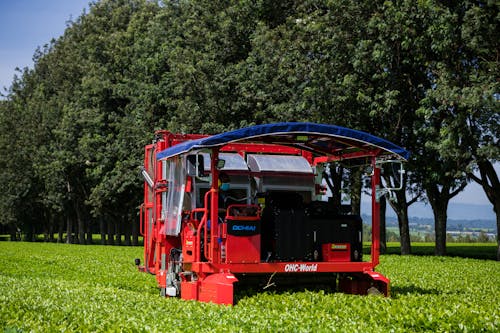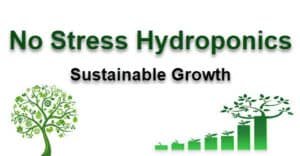
Hydroponic farming is revolutionizing the agriculture industry and giving growers the ability to produce healthy, natural produce with a fraction of the space and cost compared to traditional outdoor methods. But can hydroponics be profitable?
In this blog post, we’ll explore all aspects of hydroponic farming from its advantages over other agricultural practices, potential drawbacks when it comes to financial viability, and considerations for success indicated by expert farmers who use these systems regularly.
Whether you’re a hobbyist looking to expand their understanding of alternative agricultural techniques or you’re an entrepreneur considering investing in a hydroponic setup, this guide will provide all the information you need to make an informed decision!
What Is Hydroponic Farming?
Hydroponic farming is an innovative method of growing crops without using soil. Instead, the plants are grown in a nutrient-rich water solution, with their roots suspended directly in the water or held in a nonsoil medium such as sand, gravel, vermiculite, coconut fiber (coir) or perlite. This technique allows farmers to produce larger yields of healthier and more nutritious food than traditional soil-based agriculture.
The hydroponic process works by providing direct access to nutrients for the root systems of the plants. The plants absorb these essential elements from the solution rather than through their roots in soil. An inert growing medium is used to anchor them while ensuring adequate drainage and air circulation around the roots, which helps to obtain optimal root health and growth.
The nutrient solution is an essential part of the hydroponic system, as it provides all the necessary elements for plant growth and development.
These nutrients can be derived from organic sources such as compost tea, fish emulsion, seaweed extract or synthetic commercial fertilizers. Additionally, some hydroponic systems also use a water-soluble fertilizer that is carefully blended to provide balanced nutrition for plants.
Is Hydroponic Farming Profitable Compared To Traditional Farming Methods?
The short answer is yes, but it depends on the type of hydroponic system you use and what crops you grow. Hydroponic farming can be more labor intensive than traditional farming methods, so the cost of running a hydroponic farm may be higher than traditional operations. However, it also comes with some potential benefits that can potentially help make up for any additional costs.
For starters, hydroponic systems often produce higher yields in less time than traditional farming because they require lower water usage and don’t rely on soil fertility or pests to yield high yields. This means fewer resources are needed to raise plants and that allows farmers to save money over time. Additionally, since hydroponics is an indoor process, there’s no need to worry about weather conditions, which can be unpredictable and costly.
Furthermore, hydroponic systems are highly efficient when it comes to using energy and water. Since the nutrient solutions used in hydroponics are designed specifically for the plants’ needs, they don’t require as much energy or water as traditional farming methods. This makes hydroponic operations more cost-effective in terms of electricity and water usage.
Finally, many farmers find that their crops grown through hydroponic systems have higher nutritional value than those grown through traditional farming methods. Hydroponic growing eliminates the need for pesticides and other harmful chemicals that may reduce crop yields or degrade quality over time.
Benefits Of Hydroponic Farming Over Traditional Farming Methods
Hydroponic farming offers higher yields, shorter growing cycles, and year-round production in comparison to traditional farming methods. With hydroponic systems, farmers do not need to till the soil or worry about pests and diseases as much as they would with a traditional system.
Hydroponics also requires far less water than traditional agricultural practices. In addition, hydroponic crops are often more nutritious because minerals can be tailored specifically for each plant’s needs.
Finally, hydroponic farming is environmentally friendly since it eliminates the need for chemical pesticides, herbicides and fertilizers that have been linked to negative environmental impacts such as air and water pollution.
Are There Any Drawbacks To Using Hydroponic Farming Techniques For Commercial Agriculture Production?
Yes, there are some drawbacks to using hydroponic farming techniques for commercial agriculture production. One major drawback is the cost of the system and supplies necessary to maintain it. While hydroponic systems can be designed with a wide range of materials, even the most basic setup requires pumps, grow lights, air circulation equipment, and nutrient solutions.
Growing mediums such as rockwool or clay pellets also need to be purchased separately. Additionally, some hydroponic systems require regular maintenance and monitoring in order to ensure that they run efficiently. This can add up quickly when trying to operate a large-scale commercial farm.
Another potential downside of hydroponics is that plants may not respond well to drastic changes in their environment or nutrient levels. If a hydroponic system is not properly monitored and adjusted, the plants may suffer from nutrient deficiencies or other problems.
Additionally, while some hydroponic systems can be designed to minimize pests, they are still not entirely pest-proof. This means that farmers using hydroponics need to be vigilant about checking for signs of pests and taking measures to prevent them.
What kind of crops can be grown using a hydroponic system?
The types of crops that can be grown using a hydroponic system are limitless. Common crops include tomatoes, cucumbers, peppers, lettuce, herbs, beans, squash and strawberries.
Other more exotic choices are also possible such as watercress, carnations or even wheatgrass. The key to successful hydroponic gardening is choosing the right type of crop for your particular environment.
Different plants have different requirements when it comes to light exposure and nutrient levels which need to be taken into consideration when setting up your system. With some experimentation and research you can grow almost any type of plant in a hydroponic garden.
Conclusion
In conclusion, hydroponic farming is a viable and profitable business venture. With the right planning and execution, any farmer can be successful in this type of agriculture.
While there are some challenges to overcome, such as initial investment and ensuring a consistent water supply, these can be addressed with proper research and implementation. We encourage you to try hydroponic farming if you’re looking for an innovative and profitable way to farm!
